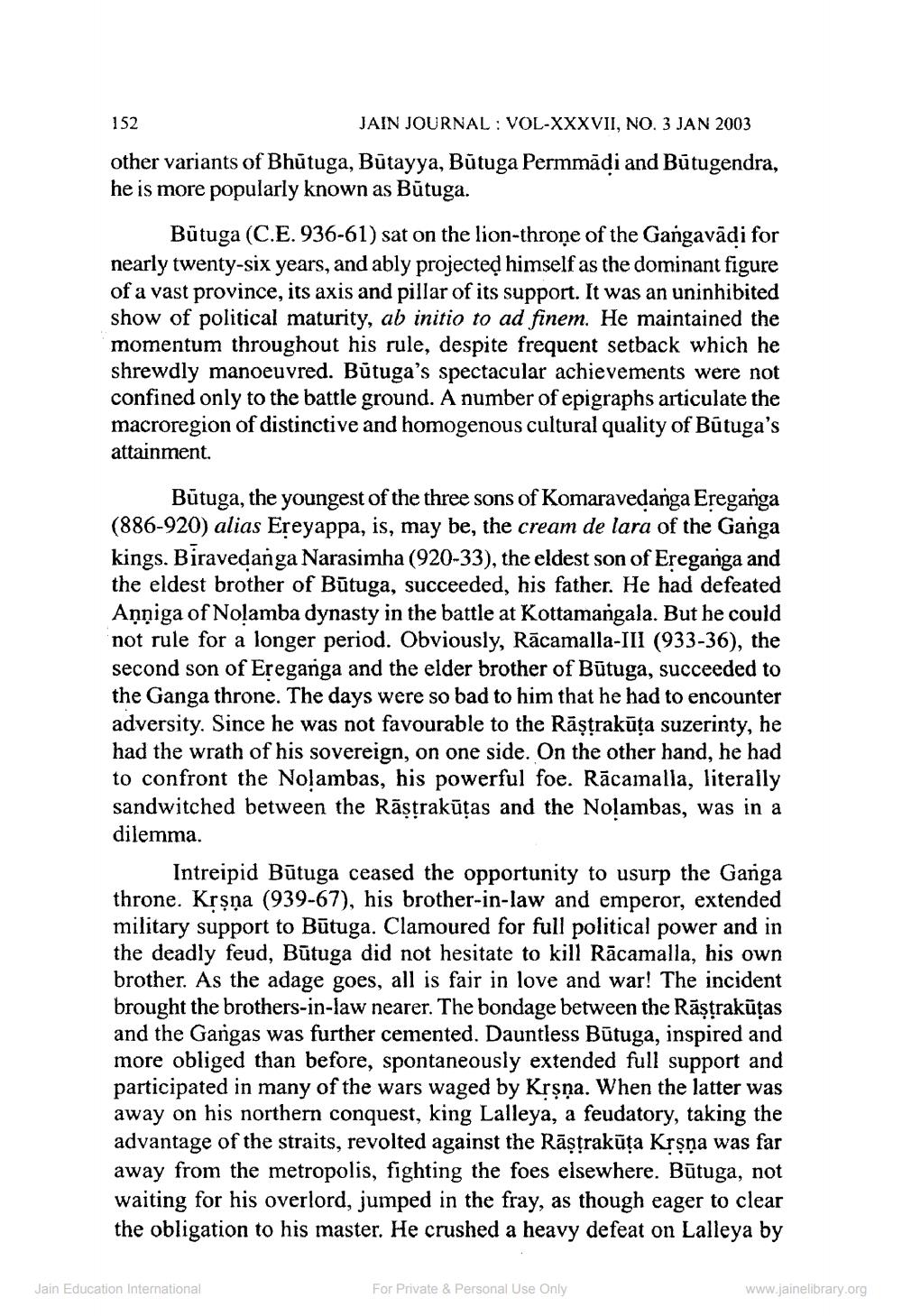________________
152
JAIN JOURNAL: VOL-XXXVII, NO. 3 JAN 2003 other variants of Bhūtuga, Būtayya, Būtuga Permmādi and Būtugendra, he is more popularly known as Būtuga.
Būtuga (C.E. 936-61) sat on the lion-throne of the Gangavādi for nearly twenty-six years, and ably projected himself as the dominant figure of a vast province, its axis and pillar of its support. It was an uninhibited show of political maturity, ab initio to ad finem. He maintained the momentum throughout his rule, despite frequent setback which he shrewdly manoeuvred. Būtuga's spectacular achievements were not confined only to the battle ground. A number of epigraphs articulate the macroregion of distinctive and homogenous cultural quality of Būtuga's attainment
Būtuga, the youngest of the three sons of Komaravedanga Ereganga (886-920) alias Ereyappa, is, may be, the cream de lara of the Ganga kings. Biravedanga Narasimha (920-33), the eldest son of Ereganga and the eldest brother of Būtuga, succeeded, his father. He had defeated Anniga of Nolamba dynasty in the battle at Kottamangala. But he could not rule for a longer period. Obviously, Rācamalla-III (933-36), the second son of Ereganga and the elder brother of Būtuga, succeeded to the Ganga throne. The days were so bad to him that he had to encounter adversity. Since he was not favourable to the Rāştrakūta suzerinty, he had the wrath of his sovereign, on one side. On the other hand, he had to confront the Nolambas, his powerful foe. Rācamalla, literally sandwitched between the Rāstrakūtas and the Nolambas, was in a dilemma.
Intreipid Būtuga ceased the opportunity to usurp the Ganga throne. Krşņa (939-67), his brother-in-law and emperor, extended military support to Būtuga. Clamoured for full political power and in the deadly feud, Būtuga did not hesitate to kill Rācamalla, his own brother. As the adage goes, all is fair in love and war! The incident brought the brothers-in-law nearer. The bondage between the Rāştrakūtas and the Gangas was further cemented. Dauntless Būtuga, inspired and more obliged than before, spontaneously extended full support and participated in many of the wars waged by Krsna. When the latter was away on his northern conquest, king Lalleya, a feudatory, taking the advantage of the straits, revolted against the Rāştrakūta Krsna was far away from the metropolis, fighting the foes elsewhere. Būtuga, not waiting for his overlord, jumped in the fray, as though eager to clear the obligation to his master. He crushed a heavy defeat on Lalleya by
Jain Education International
For Private & Personal Use Only
www.jainelibrary.org




